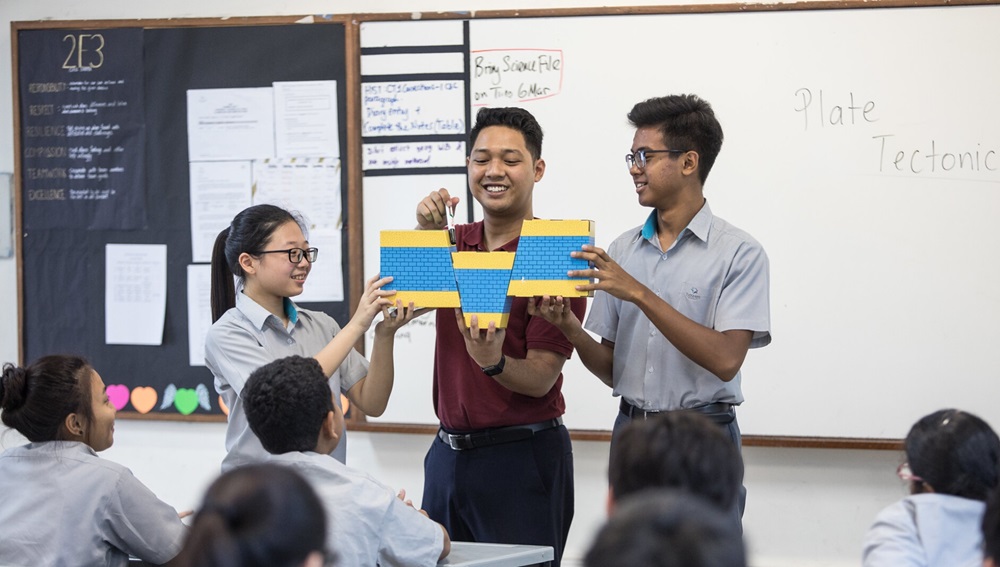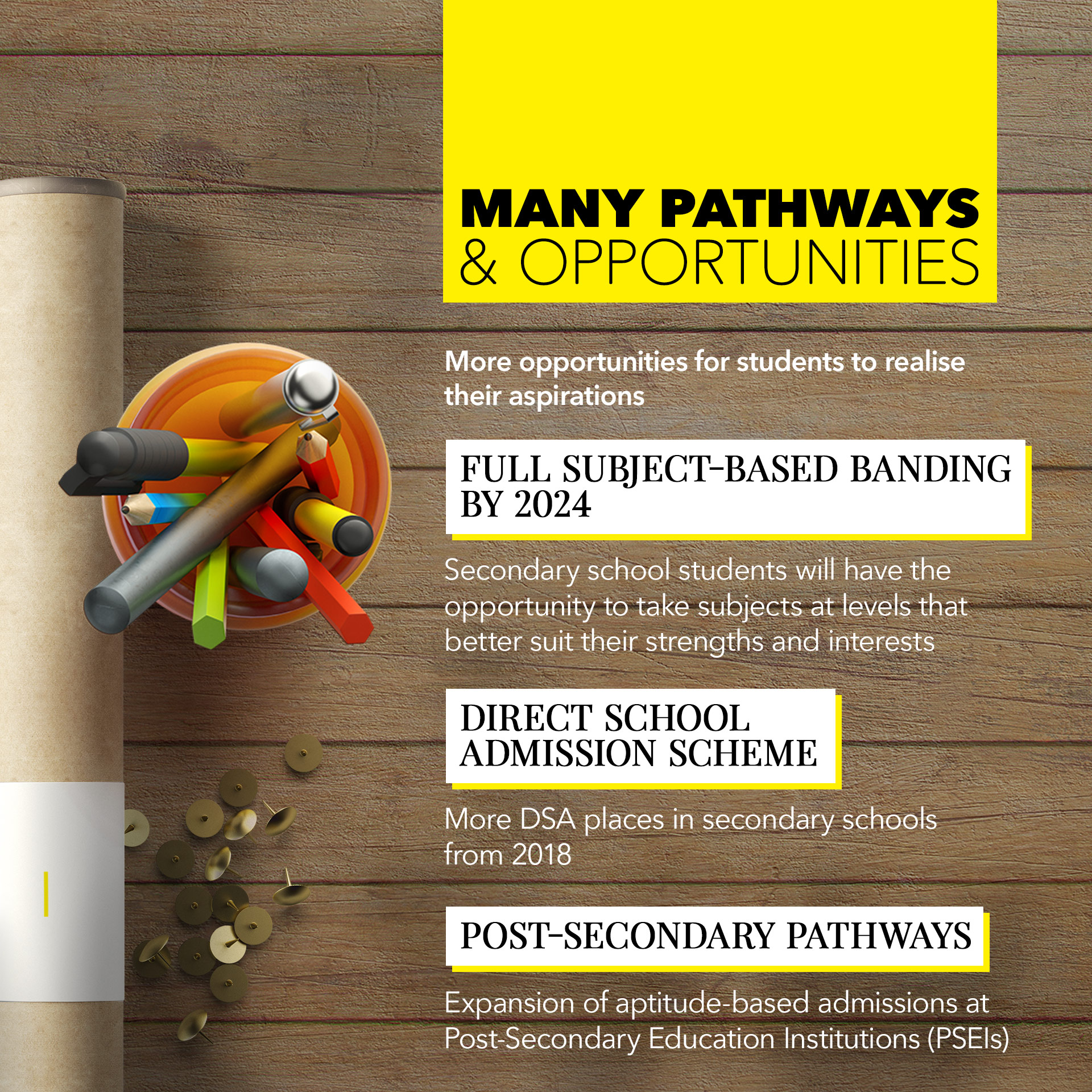
How do we get every young Singaporean to keep learning throughout life? It all starts with their experience in schools.
With the pace of technological change, we’ll need to acquire and deepen skills and knowledge fast, in order to navigate a digitally-driven future. Singapore’s schools aim to foster a resilient and adaptable spirit in each child, and help them embrace the spirit of lifelong learning.
Fundamentally, students need to be in an environment that sparks passion and motivation for learning. Two important steps are being introduced to cultivate this: reducing over-emphasis on academic results, and nurturing a joy for learning.
Reducing over-emphasis on academic results
The PSLE scoring system as we know it is changing, as part of a broader shift from an over-emphasis on academic grades. Under the new scoring system, students will be graded based on their individual performance in the subjects, regardless of how their peers have done. Each subject will be graded in wider scoring bands called Achievement Levels to reduce fine differentiation between students.
As students move from lower to middle to upper primary, and from lower to upper secondary, mid-year examinations in transition years will be removed. This gives students more time and space to adjust to a different phase of their learning journey, which brings new curriculum demands.
The removal of mid-year examinations at Primary 3, Primary 5, Secondary 1 and Secondary 3 will free up curriculum time for schools to pace out teaching and learning, and design different learning experiences to deepen students’ learning.
For example, schools are adopting applied and inquiry-based teaching and learning approaches to encourage students to observe, investigate, reflect, and create knowledge as part of their learning processes. This aims to further enrich students’ learning experience so that they can learn in more meaningful, interactive ways and cultivate a joy of learning.
Changes to PSLE scoring system and reduction in school-based assessments:
- PSLE subjects will be graded in 8 bands called Achievement Levels instead of using a T-Score
- Removal of all weighted assessments at Primary 1 and 2
By 2021, mid-year examinations will be removed for all Primary 3, Primary 5, Secondary 1 and Secondary 3 students. Schools are already progressively moving towards this
Greater flexibility to develop students’ strengths

With the introduction of Full Subject-Based Banding (Full SBB) in secondary schools by 2024, the Express, N(A) and N(T) labels will be removed. Instead, students will have greater flexibility and customisation in what they study i.e. they will be able to take subjects at a more demanding level based on their strengths, interests, and aspirations, with guidance from their schools.
Post-secondary pathways and admissions are also being reviewed to provide more opportunities for students to progress to post-secondary courses that match their strengths and interests.
RELATED ARTICLES
We use cookies to tailor your browsing experience. By continuing to use Gov.sg, you accept our use of cookies. To decline cookies at any time, you may adjust your browser settings. Find out more about your cookie preferences here .













